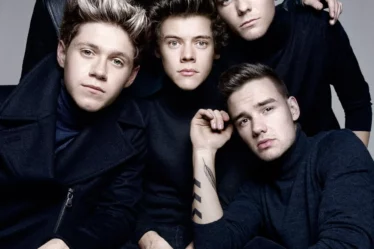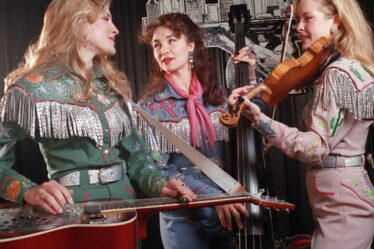
By: Therese Burgo
Fordham University is home to WFUV: Fordham University’s Voice – a nationally recognized non-commercial station and NPR affiliate. That in mind, Fordham is no stranger to radio. While this station is based on our college campus, it is not to be confused with college radio, which is run mostly – if not entirely – by students. WFUV, of course, has a few inlets for students interested in radio involvement, but this does not compare to the experience of college radio which allows students to DJ, host their own programs, choose music for rotations, and so on. In an attempt to bring the college radio experience to Fordham and understand what goes into some of the programs, I interviewed a friend of mine, Fio Pampena, who co-hosts “All Sizzle No Steak” weekly on WPTS-FM: the University of Pittsburgh’s radio station. The station describes its mission as providing “high-quality programming across multiple platforms to [the] University, community and audience, and to provide experience for its members in broadcasting and related fields.” We started our discussion with the basics of the show: “It’s Mondays from 2-4 p.m. We play a lot of genres but try to make it cohesive; similar songs flow into one another. Recently we’ve been leaning into folk music…Going forward we’re going to try to limit the genres to make it even more cohesive.” In terms of operation and the more technical side of DJing, Pampena adds that WPTS offers board training. Once complete, student DJs are authorized to “work all the little buttons.” Of course, I wanted to know more about the music and how it’s picked. “We make a collaborative playlist on Spotify,” Pampena answered, “We also learned about ‘format’ at WPTS meetings – specifically avoiding the top 40, finding artists that have under a certain amount of streams.” This was exciting information for me because it means the student DJs behind the programs are totally in control of what is played and go on their own musical scavenger hunts to find lesser-known artists and bring them to the show. Music discovery for listeners, in this case, remains completely in the hands of the students DJing the show.
Curious about Pampena’s own listening habits, I asked if he listens to radio at all in his free time: “No. There’s no point in listening to it now with streaming. I will tune into WPTS occasionally because I have friends who host their own shows, and it’s fun hearing their voices on the radio.” To that, I asked where most of his music consumption comes from. I was not shocked when he answered, “Spotify.” He credits Spotify with aiding in the majority of his music discovery, but also mentions Last.fm as another platform for finding music. When asked his thoughts on the survival of radio in an age of streaming, Pampena responded, “Radio is very in line with what is going on with Billboard, TikTok, social media,” in the sense that many radio stations pick up on what is most popular – even if it’s an old song that happens to be trending again on social media – and adds it to the rotation. The main point, however, is that radio cannot compete with streaming regarding personalization. It can only pick up on trends. “In the car, you can listen to the radio, but even then you can also use the aux.” This reflects what seems to be a growing trend: turning the radio off for good and joining streaming services. “WPTS is making itself more personalized to students in Pittsburgh,” Pampena adds. The student-led rotations on WPTS are certainly one-of-a-kind and one of Pittsburgh radio’s hidden gems when it comes to music discovery.
At the end of the interview, I asked what some of Pampena’s favorite parts about being a DJ were: “The radio events – we have live shows every Wednesday – and the community aspect…there are a lot of people involved. Also, some students make liners for the radio which are really funny. Someone even made a DJ Khaled one.” I’ve heard some of these liners (short, informal radio IDs played between songs) myself and can confirm that they’re hilarious. Finally, I asked what makes WPTS unique and worth listening to. According to Pampena, “because it’s college radio! You’re not going to get the same vibe with corporate radio.” WPTS has a podcast as well, which also reflects their strides toward creating a more interactive and personalized experience for the listener.
Aside from DJing, college radio offers a breadth of hands-on opportunities for students of all interests. At WPTS, this includes roles and leadership positions in news, sports, social media, underwriting, promotions, production – the list goes on. If you’re interested in checking out this station and supporting all the student-led work that goes into it, you can tune into WPTS-FM from anywhere through their website (wptsradio.org) or iHeart radio. And, of course, don’t miss “All Sizzle No Steak” on Mondays from 2-4 p.m.



